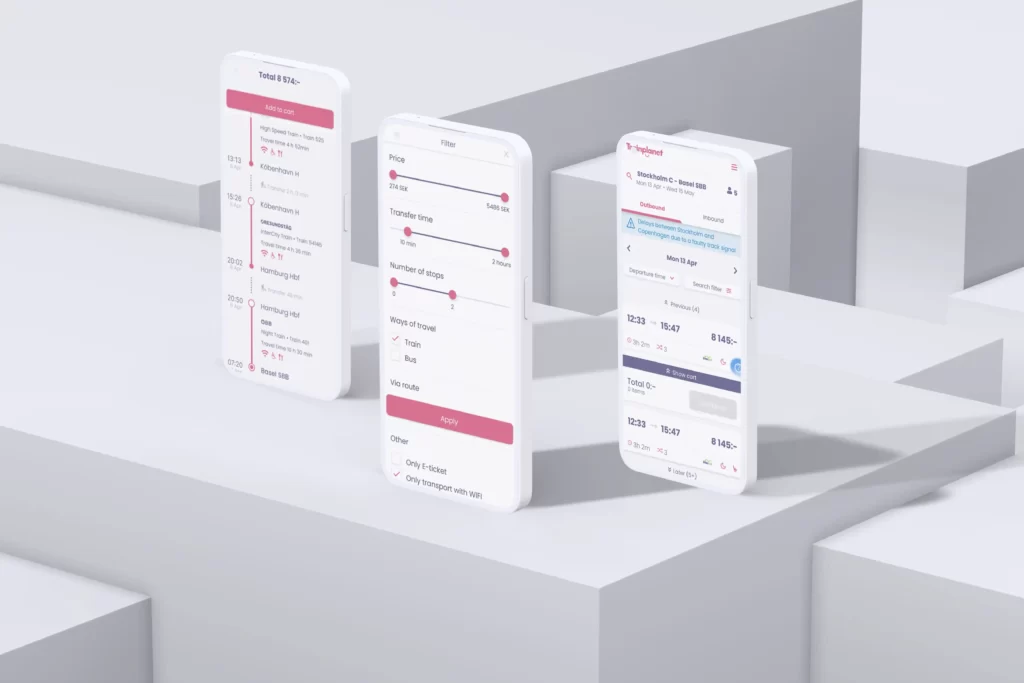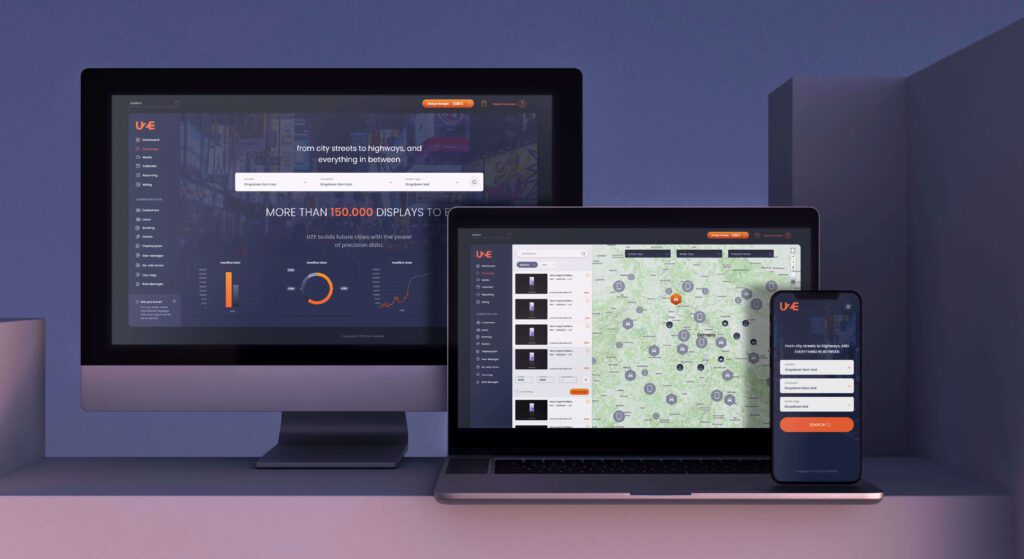Business Consulting
& Software Development
Bring your business's heart and vision to life with custom digital solutions. Partner with us for genuine commitment to your success. Every step of the way.

Read our clients stories
Discover how we helped some of the best brands in the world work faster, better, and smarter.

Trewor
The AI Chat assistant for analyzing large documentation
All your digital needs, sorted in one place
Our strength is cross-industry experience
We create custom software to improve manufacturing. Integrating AI and IoT for smarter, more effective production processes.
Our fintech software streamlines financial operations. It ensures security and efficiency by using emerging technologies.
Our custom software enhances patient care and makes healthcare operations smoother. It uses AI and data analytics for improved health results.
We are part of DevelopX Group
For our clients, this means broader selection of technologies, quicker completion of projects, and faster access to tech talents.

latest technologies
projects
developers
offices
countries
Clients about us
You do not often come across a company where everyone has a positive attitude, is open-minded, willing to help, and you would like to spend even your free time with them as they are always polite and funny, and on top of it, providing highly professional work.

Ole James Abel
CEO, Beckerbillett GmbH
They’re a professional company that has really good resources, and I’d highly recommend them.

Kamil Zabielski
CEO, Sysdogs
Inspeerity provided flexible development resource to augment the team at DA Systems in building a system for sensitive parcels that need to be delivered very fast and in a fully controlled manner.
David Upton
CEO, DA Systems
We previously worked with Inspeerity because we wanted to update our OData WebAPI system. It turned out that they are very competent and open-minded.
Patryk Pałasz
CTO, Rapp Enserv
Discover Satisfaction Guarantee Program
We trust the quality of what we do and the skills of our team. This is why we offer you a guarantee – if you’re not completely satisfied, you owe us nothing.

4.8
Our rating on Clutch
Trusted by 50+
leading brands
Explore our partnerships across various industries and the brands that trust us with their projects. See how we’ve helped people become more efficient, innovative, and productive


Interested in speaking to one of our clients for reference?
Discuss your questions with someone who has firsthand experience working with us.
Explore Our Insights
We’re giving programmers the latest tips and tricks to improve their skills. At the same time, we’re showing our clients how to use technology to make their businesses better!
Tech Talents for Hire Newsletter
Career
Work with us
Trusted by


FAQs
What services do you provide?
We are Inspeerity, a Polish software house that helps fast-growing brands and startups build digital products and scale teams. Our services are designed to take your project from A to Z, covering all aspects of your idea’s development lifecycle.
Our cross-industry experience means we know what works. By combining insights from various fields, we can offer practical solutions that will help your project succeed.
These include;
Discovery Phase: Make sure your project perfectly aligns with your goals and market needs with discovery phase services. Including validating your concept with an MVP to help secure funding.
Custom Software Development: Get help building tailored software solutions for web, mobile, and desktop platforms, using modern technologies and agile methodologies.
Staff Augmentation & Dedicated Teams: Work with developers who are as committed to your project’s success as you are with our team services.
Tech Teams: Looking for a partner with specific skills? We offer teams and developers linked to specific technologies. Discover tech teams in .NET, Java, Angular, Blazor, and more.
Design: Make sure your project is a hit with user-friendly layouts that work with custom UI/UX development.
Development Support: Do you need that extra help? Find additional services linked to understanding business requirements and testing, with QA & Business Analysis experts.
- Consulting & Growth: Discover the advantages of IT consulting services, and how we optimize your project for success.
This is just a quick overview of some of the services we offer. To discover a full explanation of all our services, read more here.
What makes your software company a good partner for us?
At Inspeerity, we’re not just a team. We’re your strategic partners in the journey of digital transformation. With our cumulative years of business experience across various industries, we understand the unique challenges and opportunities your project will face. Here’s what sets us apart:
Tailored Expertise: We don’t just work on projects; we breathe life into them. Our diverse experience means we can advise you on the functionalities, goals, and objectives your project truly needs.
Honest Assessment: Your ideas deserve honesty. We evaluate your concepts with integrity, always guiding you toward the best solutions.
Synergy in Teams: We believe in the power of unity – our clients get effective, cohesive teams, not just a group of freelancers. It’s about creating more together.
Guided Development: Every developer is backed by a supervisor, an unseen guardian who identifies risks and works closely with the team to ensure success.
Time Efficiency: We value your time. We dive straight into discussing your specific needs and how we can address them.
Project Rescuers: Challenges don’t scare us. We’re ready to step in and steer troubled projects back on track.
- Total Responsibility: We take charge of quality, timeliness, and technology, giving you peace of mind.
What types of businesses have you worked with as a software company?
Manufacturing:
Specialized manufacturing software focusing on inventory tracking, production scheduling, and quality assurance.
Tailored solutions for optimizing production processes.
Example Case Study: Beckerbillett – Digital transformation for one of the largest ticket distributors in Europe.
Healthtech:
Custom HealthTech software aimed at enhancing patient outcomes and simplifying administrative tasks.
Emphasis on cost-effective strategies and data-driven insights for reshaping healthcare delivery.
Example Case Study: Verisana – Getting screened is a very important health-promoting activity these days.
Automotive:
Custom software automotive solutions to address operational inefficiencies and outdated technology in the automotive industry.
Focus on enhancing vehicle performance, optimizing operations, and reducing costs.
Example Case Study: Porsche – Boosting after-sales game, enhancing customer relations, and improving operational flow.
Fintech:
Fintech software solutions are designed to push businesses into the future of finance.
Services include empowering customers to manage personal finances, facilitating seamless payments, and providing a user-friendly mobile banking experience.
Example Case Study: Rambus – Helping businesses simplify transactions and improve efficiency in the fintech sector.
Could you share with us examples of your successful digital transformation projects?
Sure, we are happy to share some of our successful digital transformation projects. Here are a few examples:
Digital transformation for one of the largest ticket distributors in Europe: We helped our client migrate their legacy system to a modern, cloud-based platform that improved their performance, scalability, and security. We also implemented new features such as a loyalty program, a chatbot, and a recommendation engine.
Together– a mobile application designed to help protect our community from the virus: We developed a mobile app that allows users to anonymously report their health status and symptoms, and get notified if they have been in contact with someone who tested positive for the virus. The app also provides useful information and tips on how to prevent the spread of the virus.
Cloud migration for a leading e-commerce platform: We assisted our client in moving their e-commerce platform from a traditional hosting service to a cloud-based solution that reduced their costs, increased reliability, and enhanced their user experience. We also integrated their platform with various third-party services such as payment gateways, analytics tools, and social media.
How does your software development process set itself apart from others?
Our software development process stands out from others primarily due to its unique blend of structure, flexibility, and client-focused approach. Here’s a breakdown of what makes our method special:
Balanced Approach: We strike a perfect balance between the flexibility of Agile methodologies and the need for a structured process, ensuring consistent quality results.
Four-Phase Framework: Our process is methodically divided into Exploration, Project Kick-Off, Development, and Continuous Development Support, covering every aspect of the project lifecycle.
In-depth Exploration: We invest significant time upfront in understanding your project’s needs and goals, reducing time on revisions later.
Collaborative Kick-Off: Our Project Kick-Off is a joint effort, aligning our team with your vision for seamless development.
Agile Development with Feedback: We adhere to Agile principles, allowing for iterative progress and adaptability based on ongoing feedback.
Continuous Support: Beyond delivery, we provide ongoing support and optimization, ensuring the software stays effective in a dynamic environment.
Learn more about our Software Development Process
Is Poland good for software development?
Poland is a top choice for software development for many reasons:
Talent and Education: Poland boasts a significant pool of over half a million IT professionals, with a strong focus on education in STEM fields. Polish programmers are highly regarded in global rankings for their skills and expertise.
Innovation and Tech Ecosystem: The country is home to a rapidly evolving startup ecosystem and has attracted substantial investments from major tech companies like Microsoft and Google. Poland’s IT sector is known for creativity, project experience, and proficiency in multiple programming languages.
Economic Contribution: The IT sector in Poland contributes significantly to the GDP, with exports in this industry reaching nearly EUR 10 billion. This sector is responsible for generating 8-9% of the Polish GDP, and the software business’s share is increasing.
Global Recognition: Poland ranks among the top three most competitive markets for the IT industry in Central and Eastern Europe and is recognized as the second most attractive global market for outsourcing IT services.
International Presence: The Polish market is home to the highest number of domestic IT companies in Europe, and many international corporations have opened branches and tech service centers in Poland.
Language Proficiency: A high percentage of Polish programmers are proficient in English, facilitating effective communication in international projects.
Competitive Salaries: The IT sector in Poland offers competitive salaries, with expertise in areas like Kubernetes, Amazon Web Services, and Big Data being particularly in demand.
For more detailed information and data, you can refer to these sources:
- The IT/ICT Sector in Poland – report 2023 – PARP – Centrum Rozwoju MŚP
- Poland makes case to be Europe’s next tech powerhouse – Tech.eu
- IT sector in Poland 2023: opportunities for international companies – altios.com
- Software development in Poland: IT hubs, developers, companies – N-iX
- Report: The Rise of Poland’s IT Sector. IT recruitment in 2023 – nexttechnology.io













